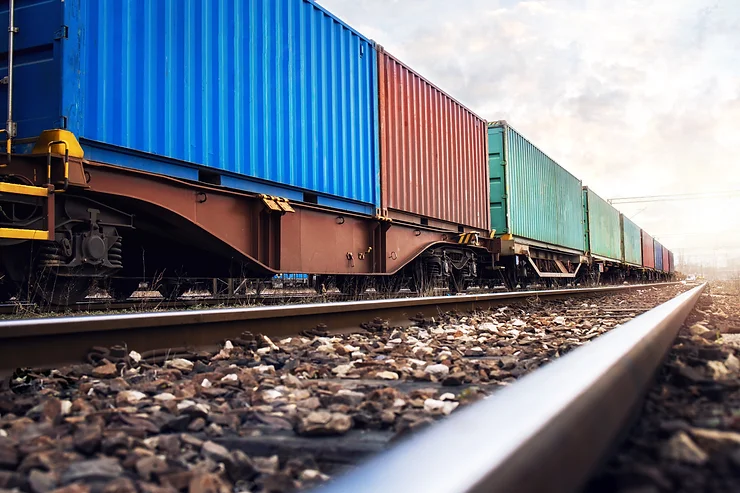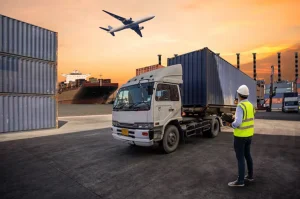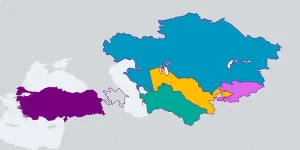When it comes to transporting goods across vast distances, rail transport emerges as a compelling option. Railways have been the lifeblood of commerce for centuries, connecting regions, nations, and entire continents. But in a world where speed often takes precedence, does rail transport still hold its ground? Let’s explore the pros and cons.
Advantages of Rail Transport
Cost-Effectiveness
Cost-effectiveness is a major plus for rail transport. With the ability to carry large volumes of goods in one go, rail transport proves its efficiency in terms of cost per ton-mile. It’s an economical choice for businesses looking to maximize their transportation budget.
Ideal for Bulk Cargo
Rail transport’s capacity for handling bulk cargo is unparalleled. If you’re dealing with heavy and voluminous goods, rail offers the space you need. It’s the go-to option for industries like mining, agriculture, and manufacturing.
Reliability and Safety
When it comes to safety, rail transport has a track record (pun intended!) of being a secure option. The dedicated rail lines and controlled environment reduce the risk of accidents. Plus, rail transport is less prone to theft and damage, ensuring your cargo reaches its destination intact.
Environmentally Friendly alternative
In an era where sustainability is a driving force, rail transport shines as an environmentally friendly alternative. Trains emit significantly less carbon dioxide per ton-mile compared to trucks or airplanes. Opting for rail reduces your carbon footprint while keeping your cargo moving.
Challenges of Rail Transport
Limited Accessibility
While rail networks cover extensive ground, they might not reach every corner. Remote areas might have limited rail connectivity, making it necessary to integrate other modes of transport.
Speed Limitations
Speed isn’t rail transport’s strong suit. Trains are generally slower than airplanes or even trucks. If your cargo requires swift delivery, you might need to weigh the trade-offs.
Infrastructure Dependence
Rail transportation heavily relies on well-maintained infrastructure. Delays can occur due to maintenance issues or even weather conditions. A disruption in the rail network could impact delivery schedules.
Dependence on Freight Types
Rail transportation is better suited for certain types of cargo, like bulk goods and heavy materials. It might not be as versatile for transporting smaller, high-value goods that require faster delivery.
Railway transportation to Central Asia
Railway transportation plays a significant role in connecting countries and regions, including Central Asia. Central Asia, comprising countries like Kazakhstan, Uzbekistan, Turkmenistan, Tajikistan, and Kyrgyzstan, is strategically located, making railway connections crucial for trade, freight transportation, and passenger travel.
Several key aspects of railway transportation in Central Asia include:
-
Transport Corridors: Various railway corridors link Central Asia with neighboring regions such as China, Russia, Iran, and Europe. For example, the transcontinental railway route known as the “Silk Road Railway” connects China and Europe through Central Asia.
-
Trade and Economy: Railway transportation contributes to developing trade links between Central Asia and other regions, enabling the export and import of goods. This is essential for the economic development and diversification of the region.
-
Infrastructure: In recent years, Central Asian countries have actively developed their railway infrastructure by modernizing existing routes and building new ones. This includes constructing new railway tracks, wagons, and stations.
-
Transit Opportunities: Due to its geographic location, Central Asia can serve as a transit point for goods and containers moving between China, Russia, and other countries.
-
Integration: The development of railway connections promotes regional integration and cooperation among Central Asian countries, contributing to stability and development.
-
Passenger Transport: Railway passenger transportation also holds significance by providing people the opportunity to travel between cities and countries within the region and beyond.
The overall trend in recent years indicates a growing interest in developing railway connections in Central Asia, which enhances economic, transportation, and cultural ties in the region.
Pros and Cons of Railway Transportation in Central Asia: Pros:
1. Trade and Economy: Railway transportation facilitates international trade, exports, and imports of goods, contributing to the region’s economic strength.
2. Transit Opportunities: Central Asia’s geographical location allows it to serve as a transit route for goods between Europe and Asia, generating additional revenue and fostering infrastructure development.
3. Infrastructure and Development: Developing railway infrastructure leads to job creation, workforce skill improvement, and investments in the transportation sector.
4. Regional Cooperation: Strengthened railway connections promote collaboration among regional countries, aiding in addressing common challenges and maintaining stability.
Cons:
1. Infrastructure Issues: Some railway sections might be outdated or require modernization, leading to delays and inefficiencies in transportation.
2. Geopolitical Factors: Geopolitical tensions and wars between neighboring nations may have an impact on Central Asia and compromise the security and dependability of rail travel.
3. Dependency on a Single Mode of Transport: Excessive reliance on railroad transportation could render the region vulnerable to changes in global trade and transportation logistics.
4. Environmental Aspects: Railway transportation can also have adverse environmental effects, such as emissions of pollutants.
Rail Transportation to Kazakhstan
Rail transportation in Kazakhstan plays a significant role in the country’s transportation infrastructure. Kazakhstan is situated at the crossroads of various transportation routes connecting the East and West, as well as the North and South. The railway system in the country provides a crucial method for the movement of goods and passengers.
The national railway company of Kazakhstan is called “Temirzholy,” which translates from Kazakh as “Railways.” It is responsible for the management, development, and maintenance of the railway infrastructure in the country.
The advantages of rail transportation in Kazakhstan include:
1. Geographical Location: Kazakhstan serves as a transportation hub through which numerous international railway corridors pass, connecting Europe and Asia.
2. Efficiency for Freight Transport: Rail transportation is often used for delivering goods over long distances, as it can ensure stability and reliability when transporting large volumes of cargo.
3. Multiple Directions: Railway tracks extend across the entire territory of Kazakhstan, connecting various regions and populated areas.
4. Infrastructure Development: Kazakhstan continuously invests in the development and modernization of its railway infrastructure to enhance the efficiency and competitiveness of the transportation system.
5. Transit Transport: Due to its location, Kazakhstan is an important route for transit freight transportation between China and Europe.
6. Transcontinental Routes: Kazakhstan’s geographic location makes it a key player in transcontinental rail transportation.
-
The Trans-Caspian Railway connects Kazakhstan with the ports of the Caspian Sea, allowing goods to be transported to and from Central Asia, Europe, and the Middle East.
-
China-Kazakhstan Railway: One of the most important international rail routes is the China-Kazakhstan Railway, which connects China’s rail network to Kazakhstan and beyond. This route is a significant part of China’s Belt and Road Initiative (BRI) and serves as a major trade corridor between China and Europe.
7. Passenger Transport Development: In addition to freight, rail transportation is also significant for passenger travel within the country and on international routes.
Rail Transportation to Tajikistan
Rail transportation in Tajikistan has its own specific features and importance within the country’s transportation system. Tajikistan is a mountainous country in Central Asia, and its railway infrastructure is less developed compared to other modes of transportation.
-
Limited Rail Network: Tajikistan’s rail network is relatively small and underdeveloped. The country has a limited number of railway lines that connect a few major cities and towns. The main railway line runs from the capital city, Dushanbe, to the northern city of Khujand and continues to the Uzbek border.
-
Connection to Uzbekistan: The primary rail link for Tajikistan is through Uzbekistan. The rail line connecting Dushanbe and Khujand to the Uzbek border facilitates the movement of goods and passengers between the two countries.
-
Challenges: Tajikistan’s mountainous terrain poses challenges for railway construction and operation. Building rail infrastructure in such an environment can be complex and costly. Additionally, political and economic factors can impact the development of cross-border rail links.
Rail Transportation to Kyrgyzstan
Rail transportation in Kyrgyzstan has limited significance compared to other modes of transportation, such as road and air transport. Kyrgyzstan is a landlocked, mountainous country, which makes rail transportation less developed. Nevertheless, the country has a small railway infrastructure that plays a certain role in the transportation system.
-
Limited Rail Network: Kyrgyzstan has a relatively small and underdeveloped railway system. The country’s rail network primarily connects the capital city, Bishkek, to the border with Kazakhstan. This railway line serves as the main connection for Kyrgyzstan’s rail transportation.
-
Connection to Kazakhstan: The primary rail link for Kyrgyzstan is through Kazakhstan. The railway line from Bishkek extends to the Kazakhstan border, facilitating the movement of goods and passengers between the two countries.
-
Challenges: Kyrgyzstan’s mountainous terrain and geographical location can pose challenges for railway construction and operation. Building and maintaining rail infrastructure in such an environment can be complex and costly.
Rail Transportation to Uzbekistan
Rail transportation in Uzbekistan plays a crucial role in the country’s transportation infrastructure. The railway system in Uzbekistan serves as a vital means of transporting goods and passengers, connecting various regions within the country and international partners.
-
Uzbekistan Railways (Oʻzbekiston temir yoʻllari): This is the national railway company of Uzbekistan, responsible for the operation and management of the country’s rail network. It oversees both freight and passenger services.
-
Rail Network: Uzbekistan has an extensive rail network that connects major cities, industrial centers, and border crossings. The country’s railway system plays a pivotal role in facilitating trade between Central Asia and neighboring countries.
-
Cross-Border Connections: Uzbekistan shares borders with several countries, including Kazakhstan, Turkmenistan, Tajikistan, Kyrgyzstan, and Afghanistan. Rail connections exist with these countries, contributing to regional trade and connectivity.
-
China-Central Asia Railway: Uzbekistan is part of the broader China-Central Asia rail network, which aims to connect China with Central Asian countries and beyond. This network is a key component of China’s Belt and Road Initiative (BRI) and serves as a major trade corridor.
-
Passenger and Freight Services: In addition to facilitating trade, the rail network provides both domestic and international passenger services. It offers an alternative mode of travel for people within the country and across borders.
-
Infrastructure Development: Uzbekistan has been investing in modernizing and upgrading its rail infrastructure to enhance efficiency, capacity, and safety. This includes track improvements, electrification, and other modernization initiatives.
-
Trade and Connectivity: Uzbekistan’s rail network is vital for the country’s trade activities, enabling the transportation of goods to and from neighboring countries and beyond.
Rail Transportation to Turkmenistan
Rail transportation in Turkmenistan plays a significant role in the country’s transportation system. Turkmenistan is located in the heart of Central Asia and has railway connections with neighboring countries as well as international partners.
-
Turkmenistan Railways (Türkmen Demirýollary): The national railway company of Turkmenistan, Turkmenistan Railways, is responsible for managing and operating the country’s rail network. This includes both passenger and freight services.
-
Rail Network: Turkmenistan has a rail network that extends throughout the country, connecting major cities, industrial centers, and border crossings. The network facilitates domestic transportation and serves as a link for trade with neighboring countries.
-
Neighboring Connections: Turkmenistan shares borders with several countries, including Iran, Afghanistan, Uzbekistan, and Kazakhstan. Rail connections with these countries enable cross-border trade and connectivity.
-
Trans-Caspian Railway: The Trans-Caspian Railway connects Turkmenistan’s rail network to the ports on the Caspian Sea, facilitating the movement of goods to and from Central Asia, Europe, and the Middle East.
-
Passenger and Freight Services: Turkmenistan’s rail system provides both passenger and freight services. Passenger trains connect cities and regions within the country, while freight trains transport goods domestically and internationally.
-
Infrastructure Development: Like many countries in the region, Turkmenistan has been investing in upgrading and modernizing its rail infrastructure to improve efficiency and capacity.
Toptrans: Your Expert Partner in Seamless Rail Freight 🚢
Introduction to Toptrans and Its Expertise 🏆
Meet Toptrans, a seasoned player in the logistics arena with a remarkable 7-year track record. Specializing in international cargo transportation, Toptrans has garnered a reputation for excellence.
Comprehensive Range of Transportation Services 🚚
Toptrans offers a comprehensive spectrum of services, including land, sea, air, and rail transportation. From ensuring timely deliveries to handling customs procedures, their solutions cover every logistical need.
Coverage of Key Regions, Including Georgia and Central Asia 🗺️
Toptrans’ coverage spans across Georgia, encompassing major cities like Tbilisi, Batumi, and Poti. Their strategic presence extends to Central Asia, offering a crucial link for businesses eyeing the region’s opportunities.
Unlocking Opportunities: Toptrans’ Geopolitical Advantage 🗺️
Toptrans’ Strategic Approach to Alternative Transport Solutions 🛤️
Amid geopolitical shifts and evolving trade dynamics, Toptrans stands out for its strategic approach to offering alternative transport solutions. This flexibility proves invaluable in turbulent times.
Benefits of Diversifying Transportation Routes Amid Geopolitical Developments 🌐
The ability to adapt and diversify transportation routes becomes imperative in a changing world. Toptrans’ prowess in providing versatile options ensures uninterrupted trade flows even in challenging circumstances.
Navigating the Pricing Terrain: Transparent Service Fees 💰
Factors Influencing the Final Service Fee Determination 💵
Toptrans’ pricing model takes into account various factors, such as cargo characteristics, chosen routes, and additional services required. This tailored approach ensures fair and transparent pricing.
Tailoring Costs Based on Cargo Characteristics and Transportation Requirements 📦
Each cargo is unique, and Toptrans’ pricing strategy reflects this. By considering cargo specifications and transportation needs, the final service fee is optimized for each customer.








